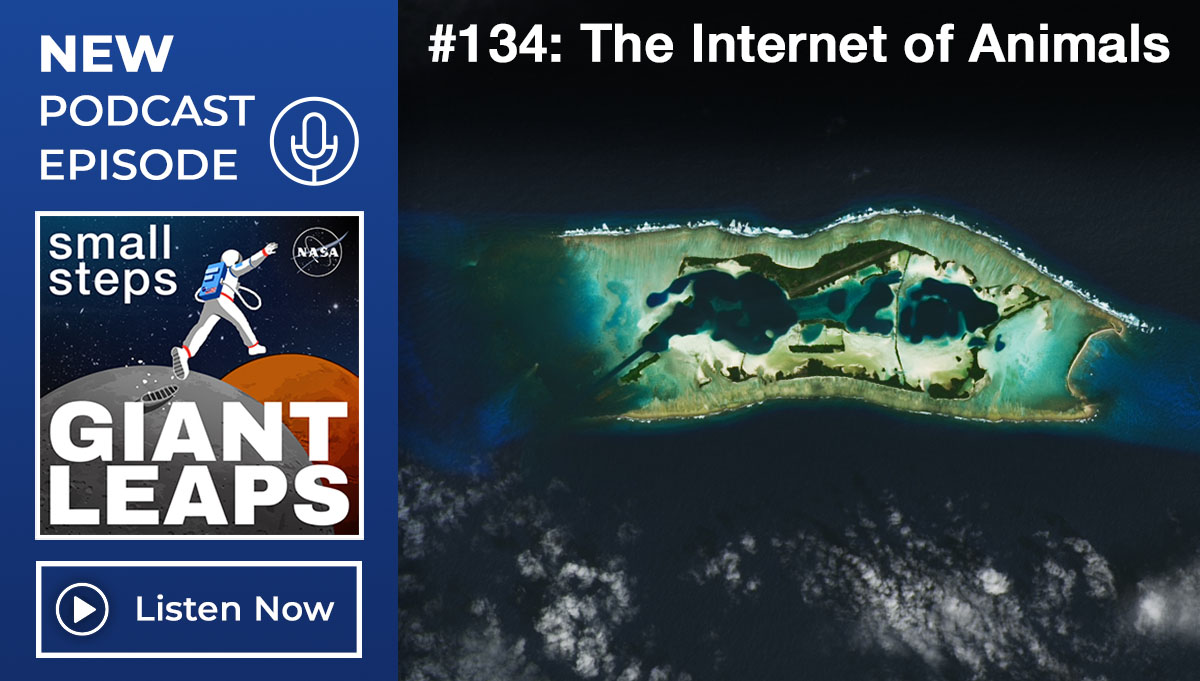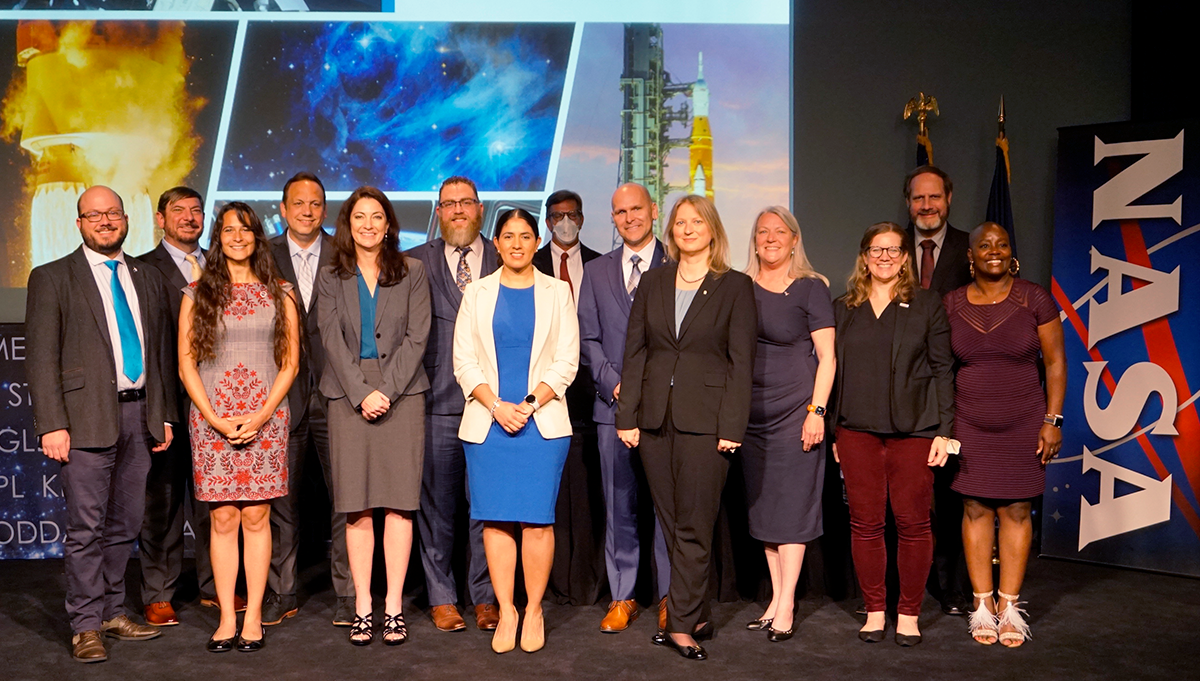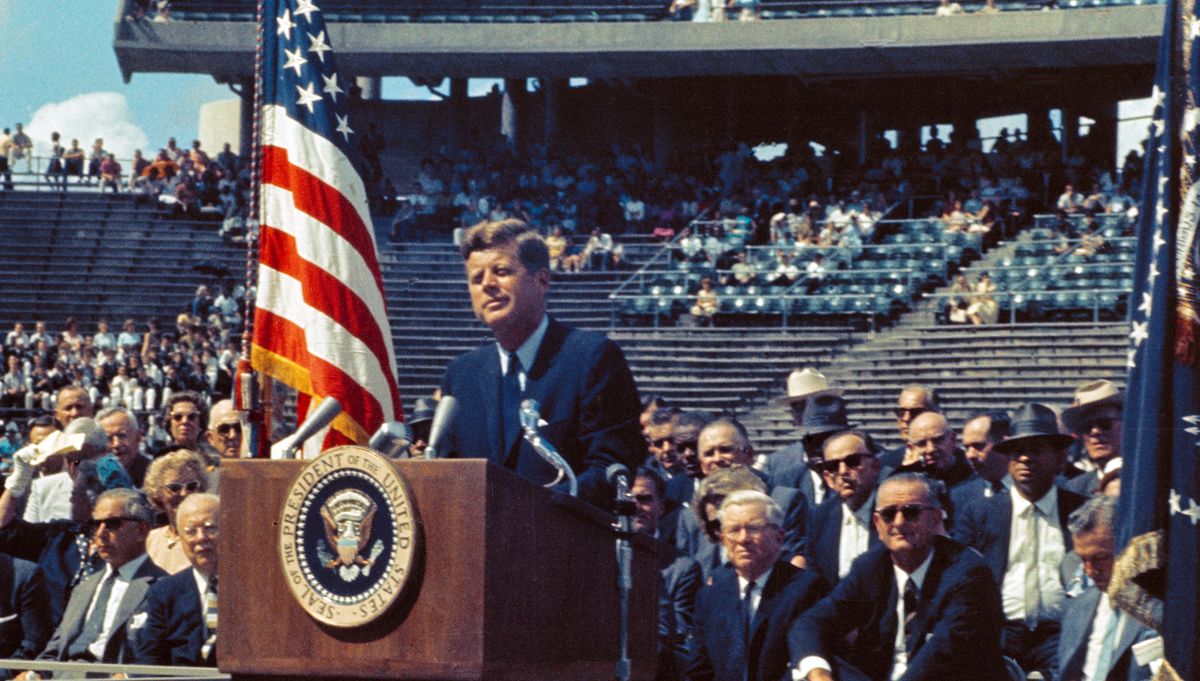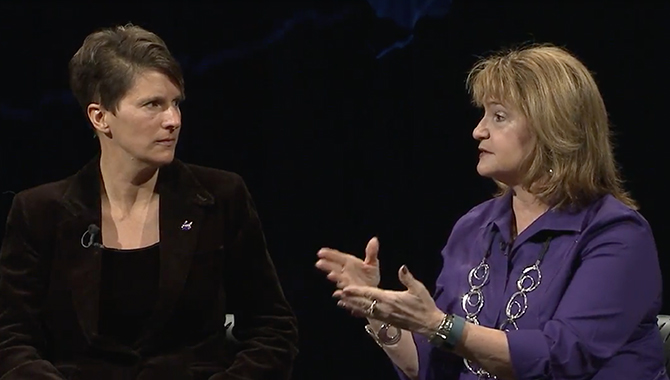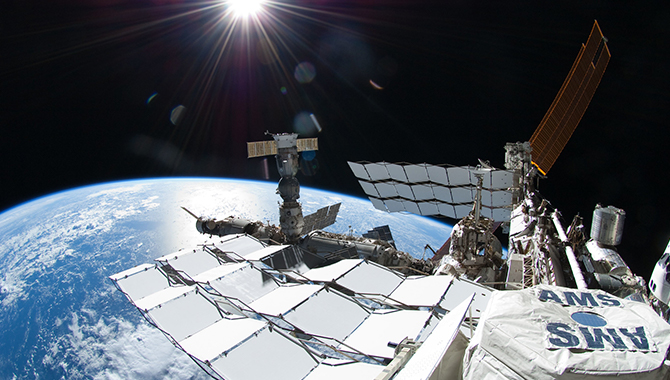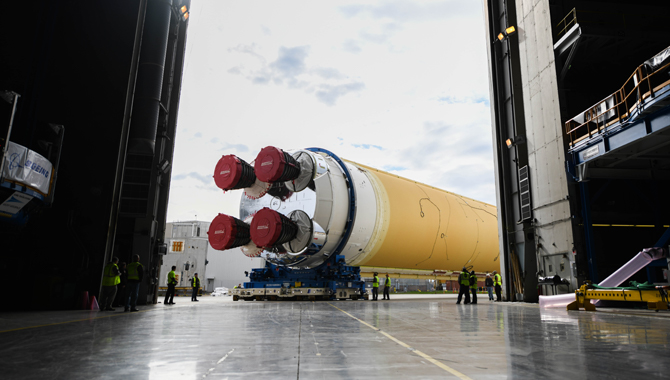
SELP assignments have included working on the Space Launch System. Here, the massive SLS core stage is being moved at the Michoud Assembly Facility in Louisiana. Credit: NASA/Jude L. Guidry
The Systems and Engineering Leadership Program develops the next generation of NASA leaders.
As NASA gears up for an ambitious decade that includes launching a new generation of rockets and spacecraft, APPEL Knowledge Services has opened another cycle of the Systems and Engineering Leadership Program (SELP), aimed at developing the skills of a new generation of leaders.
The SELP is a comprehensive program that combines technical hands-on experience with leadership training, mentoring and coaching. The core of the program is a six- to nine-month assignment for each participant, away from their home Center, at one of NASA’s other Centers.
“We need to find every opportunity to provide young engineers hands-on experience on our programs and projects. SELP does this by working with the Centers and the projects to place our students in challenging positions where they can gain that experience and become good systems engineers and future leaders at NASA,” said Ralph R. Roe, Jr., NASA Chief Engineer.
The SELP program is founded on concepts from The Art and Science of Systems Engineering, a monograph developed by a NASA team with a collective 390 years of technical experience. The authors identify systems engineering as a critical core competency within NASA, and set forth clear definitions, as well as highly effective behaviors.
The authors liken a systems engineer to a maestro of an orchestra who knows what a musical selection should sound like and has the skills to guide a team of musicians in using their full talent to produce the desired end result.
“Systems engineering is holistic and integrative. It incorporates and balances the contributions of structural, mechanical, electrical, software, systems safety, and power engineers, plus many other, to produce a coherent whole. Systems engineering is about tradeoffs and compromises, about generalists rather than specialists,” the authors note.
“SELP is designed to develop future engineering leadership in our agency,” said Roger Forsgren, NASA Chief Knowledge Officer and APPEL Director. “Great leaders aren’t born, they are developed. SELP is an intensive program that causes each cohort to engage in some serious personal reflection and coaching in order to improve any weaknesses and to build upon their strengths. I have often heard from graduates of the program that SELP not only enhanced their career at NASA but made them a better person, overall.”
The nomination process for the 2020-2021 cycle of SELP is now open. For more eligibility information, click here.
The remote assignment is a significant personal commitment, but it brings many career-enhancing advantages, according to Forsgren. “First, they get to see how another NASA center operates and manages programs. Secondly, it’s an invaluable networking experience to get to know another center’s personnel as well as another center’s technical capabilities. Finally, they gain a more global outlook toward our agency, which is what you’re looking for when developing future NASA leaders.”
NASA’s Centers support the program by identifying possible assignments for the candidates on projects. In past cycles, assignments have included such high-profile projects as the Space Launch System, the James Webb Space Telescope and the Mars 2020 Rover. The SELP matches candidates with assignments that help them build the skills and abilities identified by their home Center as most needed in the future.
Following a review of nominations by NASA’s Engineering Management Board, top candidates are invited to in-person interviews at NASA Headquarters. Shortly after the interview, final candidates are selected and matched to assignments. Orientation is planned for late August.
The SELP group meets multiple times over the course of the program, forming a cohesive cohort. These meetings, held at different NASA Centers, focus on key leadership topics and enable self-discovery, personal growth and team building.
“After graduating from SELP, our alumni keep in contact,” Forsgren said. “This is something they do on their own. They do it because they’ve learned how critical it is to keep in touch, share lessons learned, and help out when needed. SELP tries to foster an agency-wide outlook and the success of the program is proven when our graduates take it upon themselves to develop this cadre of leaders helping each other.”
More information about SELP can be found on the APPEL KS website. A list of SELP Advocates at each Center can be found here.



